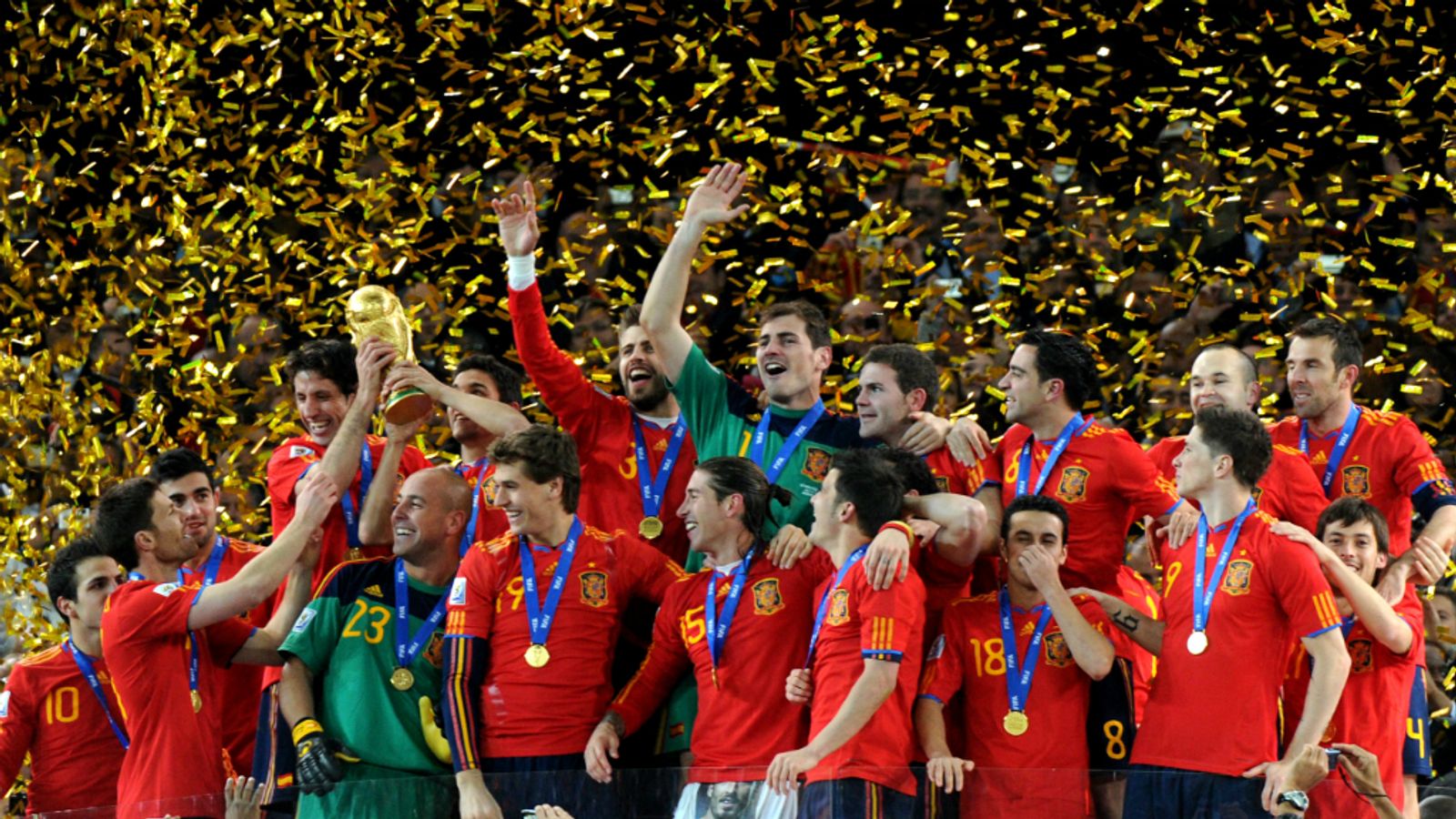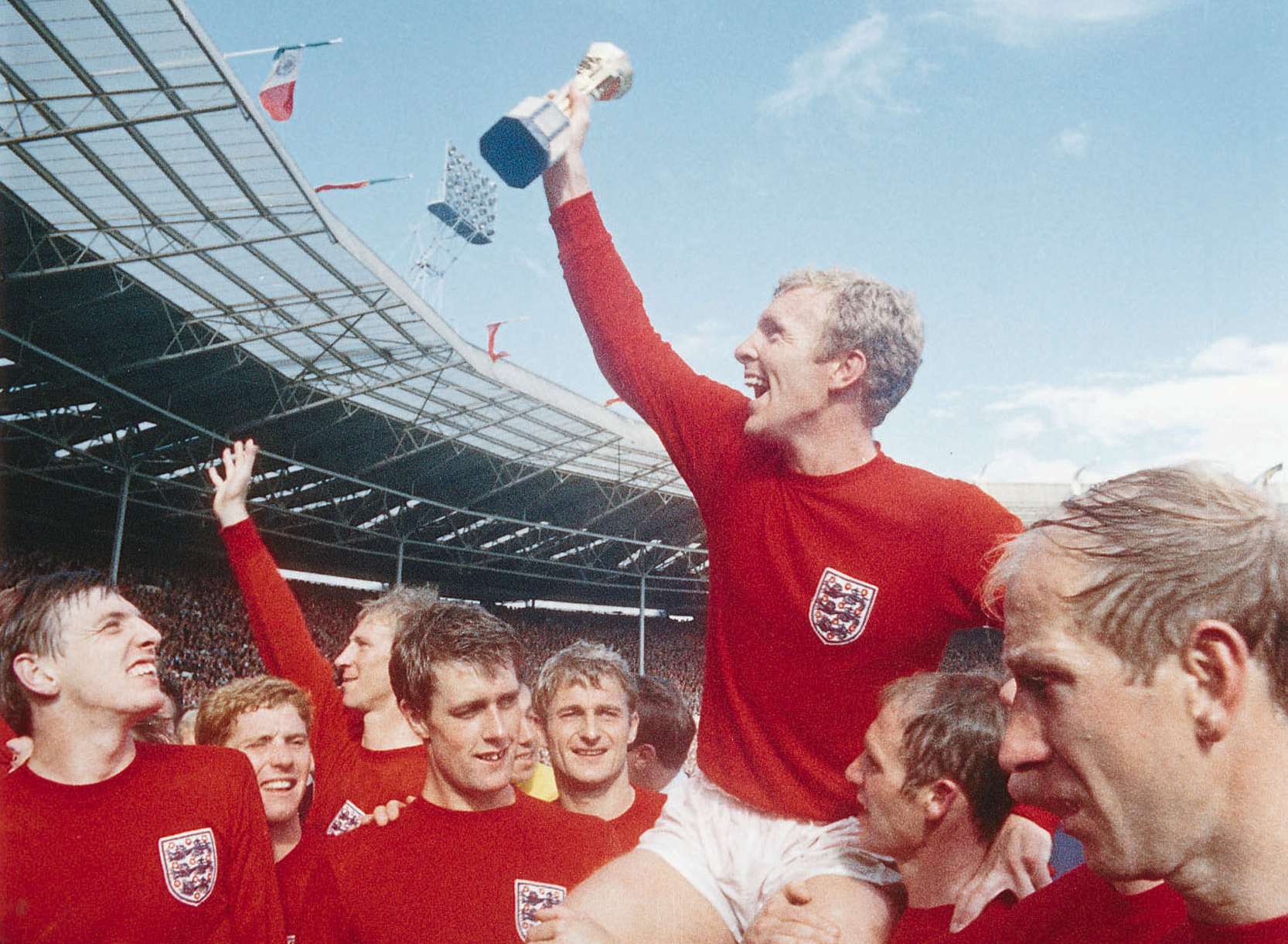2010 FIFA World Cup Final: A nail-biting clash between Spain and the Netherlands! This electrifying match, held in Johannesburg’s Soccer City stadium, wasn’t just a game; it was a historical showdown, a clash of titans that culminated in a dramatic victory for Spain, securing their first ever World Cup title. Prepare to relive the tension, the brilliance, and the controversy of this unforgettable final!
From the tactical masterclass orchestrated by Vicente del Bosque to the relentless pressure applied by Bert van Marwijk’s Dutch squad, the final was a rollercoaster of emotions. We’ll delve into the key moments, analyze individual player performances – think Iniesta’s stunning goal, Sneijder’s midfield mastery, and Robben’s near misses – and explore the controversial refereeing decisions that shaped the narrative.
Get ready for a deep dive into one of the most memorable World Cup finals of all time!
The Match Itself
The 2010 FIFA World Cup Final between Spain and the Netherlands was a fiercely contested match, ultimately decided by a single goal in extra time. It was a clash of styles, with Spain’s possession-based tiki-taka facing off against the Netherlands’ more physical and direct approach. The game was marked by its intensity, controversial refereeing decisions, and a dramatic finish.
Tactical Approaches
Spain, under Vicente del Bosque, employed their characteristic tiki-taka style. This involved intricate passing in midfield, quick movement off the ball, and patient build-up play to create scoring opportunities. They aimed to dominate possession and tire out their opponents, creating openings through superior technique and movement. The Netherlands, managed by Bert van Marwijk, adopted a more pragmatic approach, focusing on a strong defensive structure and quick counter-attacks.
They employed a physical style of play, looking to disrupt Spain’s rhythm and exploit any defensive lapses. This contrast in styles led to a tense and often ill-tempered encounter.
Key Player Performances
Andrés Iniesta’s performance was pivotal for Spain. His tireless running, exceptional passing, and ability to unlock defenses were crucial in Spain’s control of the game. Xavi Hernandez, the midfield maestro, dictated the tempo and provided the creative spark, orchestrating Spain’s attacks with his pinpoint passing accuracy. For the Netherlands, Wesley Sneijder’s playmaking abilities were evident, though he was often stifled by Spain’s midfield dominance.
Learn about more about the process of world cup how many teams in the field.
Arjen Robben, a constant threat on the counter, was repeatedly fouled and frustrated by Spain’s disciplined defense. His pace and dribbling skill, however, posed a constant danger whenever he got the ball.
Significant Match Events
The match was a tense affair with several key moments shaping its outcome. The following table details the significant events:
| Time | Event | Team | Player Involved |
|---|---|---|---|
| 116′ | Goal | Spain | Andrés Iniesta |
| 23′ | Yellow Card | Netherlands | Mark van Bommel |
| 57′ | Yellow Card | Netherlands | Nigel de Jong |
| 109′ | Yellow Card | Netherlands | John Heitinga |
| 68′ | Substitution | Spain | Cesc Fàbregas for Xavi |
| 77′ | Substitution | Netherlands | Rafael van der Vaart for Dirk Kuyt |
| 88′ | Substitution | Netherlands | Eljero Elia for Giovanni van Bronckhorst |
The Controversy and Aftermath: 2010 Fifa World Cup Final

The 2010 World Cup final, while a thrilling spectacle culminating in Spain’s maiden victory, wasn’t without its share of controversy. Referee Howard Webb’s performance came under intense scrutiny, sparking debates that linger even today. The aftermath saw a mixture of jubilant celebrations and bitter disappointment, impacting the narratives surrounding both teams and the tournament itself.
Controversial Refereeing Decisions
Several decisions made by referee Howard Webb during the match generated significant controversy. The most debated incident involved a perceived handball by Netherlands’ defender John Heitinga inside the penalty area. Many felt this should have resulted in a penalty for Spain, potentially altering the course of the game. Additionally, the awarding of a yellow card to Nigel de Jong for a brutal, kung-fu style kick to Xabi Alonso’s chest was considered lenient by some, with calls for a red card.
These decisions, along with several other less prominent calls, fuelled accusations of bias and inconsistent officiating, impacting the perception of the final’s fairness. The debate continues to this day, highlighting the subjective nature of refereeing in high-pressure situations.
Reactions to the Final
The reactions to the final were as diverse as the global fanbase. Spanish fans erupted in jubilant celebrations, marking a historic moment for their national team. The victory was seen as the culmination of years of meticulous development and tactical evolution in Spanish football, solidifying their position as a global powerhouse. In contrast, Dutch fans expressed frustration and anger, particularly focusing on the refereeing decisions.
The media coverage was similarly divided, with some outlets praising Spain’s controlled performance and others criticizing the officiating and highlighting the Netherlands’ aggressive tactics. Players from both teams offered varied perspectives, with Spanish players emphasizing their team’s collective effort and the Dutch players expressing disappointment but also acknowledging Spain’s superiority.
Long-Term Impact on Spain
Spain’s victory in the 2010 World Cup had a profound and lasting impact on their national team and football culture. The win cemented their status as a global footballing force, inspiring a new generation of Spanish players and coaches. The success fostered a sense of national pride and boosted the popularity of football within the country. The victory’s legacy extends beyond mere sporting achievement; it represents a cultural triumph, enhancing Spain’s international standing and leaving an indelible mark on the nation’s sporting history.
This success also influenced tactical approaches globally, with Spain’s possession-based “tiki-taka” style inspiring teams worldwide.
Summary of Controversies and Legacy
The 2010 World Cup final remains a subject of debate, primarily due to the controversial refereeing decisions that influenced the match’s narrative. While Spain’s victory was undoubtedly deserved, the lingering questions surrounding the officiating continue to fuel discussions. However, the match’s legacy extends beyond the controversies; it marked a pivotal moment for Spanish football, establishing their dominance on the world stage and leaving a lasting impact on the global game through their innovative playing style and the inspiration provided to other teams and nations.
The Legacy of the Players
The 2010 FIFA World Cup final was a dramatic affair, showcasing not only exceptional teamwork and tactical prowess but also individual brilliance. Several players cemented their legacies with standout performances, while others saw their careers take unexpected turns in the aftermath. Examining their post-World Cup trajectories reveals fascinating insights into the unpredictable nature of professional football.
Breakout Performances in the Final
Andrés Iniesta’s extra-time goal secured Spain’s victory and cemented his status as a global icon. His performance, characterized by tireless running, precise passing, and clinical finishing, highlighted his exceptional all-around ability. On the Dutch side, Wesley Sneijder’s midfield mastery and contributions throughout the tournament, culminating in a strong showing in the final, solidified his reputation as one of the world’s best playmakers.
While the final itself might not have been the peak performance for some players, it undeniably showcased their talent on the world’s biggest stage. The match served as a powerful platform for several players to elevate their profiles and attract the attention of top clubs worldwide.
Post-World Cup Careers of Key Players
Iniesta’s career continued its upward trajectory after the 2010 World Cup. He remained a cornerstone of Barcelona’s success, adding more trophies to his already impressive collection before eventually moving to Vissel Kobe in Japan. Sneijder, after a period of success at Inter Milan, experienced a more varied career path, playing for several clubs across Europe. Iker Casillas, Spain’s legendary goalkeeper, continued his illustrious career at Real Madrid before moving to Porto, showcasing his longevity and consistency at the highest level.
For players like Nigel de Jong, whose career trajectory was somewhat affected by his controversial challenge in the final, the post-World Cup years were marked by a combination of success and injury setbacks.
Comparative Trajectories of Key Players, 2010 fifa world cup final
Comparing the post-World Cup trajectories of Iniesta and Sneijder reveals contrasting paths. Iniesta maintained a high level of performance and remained at the pinnacle of the game for several more years, culminating in a graceful transition to a different league. Sneijder, while experiencing continued success, faced more challenges and changes of clubs. This illustrates the diverse paths that even top-level players can experience after a World Cup, highlighting the dynamic and competitive nature of professional football.
The impact of the final on individual players’ careers wasn’t uniform, with some players experiencing sustained success and others facing different challenges.
Key Players and Post-2010 Achievements
The following bullet points summarize the key players and their notable achievements post-2010:
- Andrés Iniesta: Won multiple La Liga titles and Champions League titles with Barcelona, moved to Vissel Kobe in Japan.
- Wesley Sneijder: Won Serie A title with Inter Milan, played for several other top European clubs.
- Iker Casillas: Continued success at Real Madrid, later moved to Porto and won several titles.
- Nigel de Jong: Continued playing in various leagues after a long and successful career.
- Carles Puyol: Retired from football after a long and decorated career with Barcelona.
The 2010 FIFA World Cup Final wasn’t just about a game; it was a testament to Spain’s unwavering tactical prowess and a symbol of their rise to footballing dominance. The match, despite its controversies, left an indelible mark on the sport, impacting players’ careers, shaping national pride, and leaving behind a legacy that continues to resonate with football fans worldwide.
It showcased the beautiful game at its finest – a thrilling mix of skill, strategy, and undeniable drama. So, whether you were a witness to the spectacle or are discovering it for the first time, prepare to be captivated by the story of Spain’s historic triumph!


